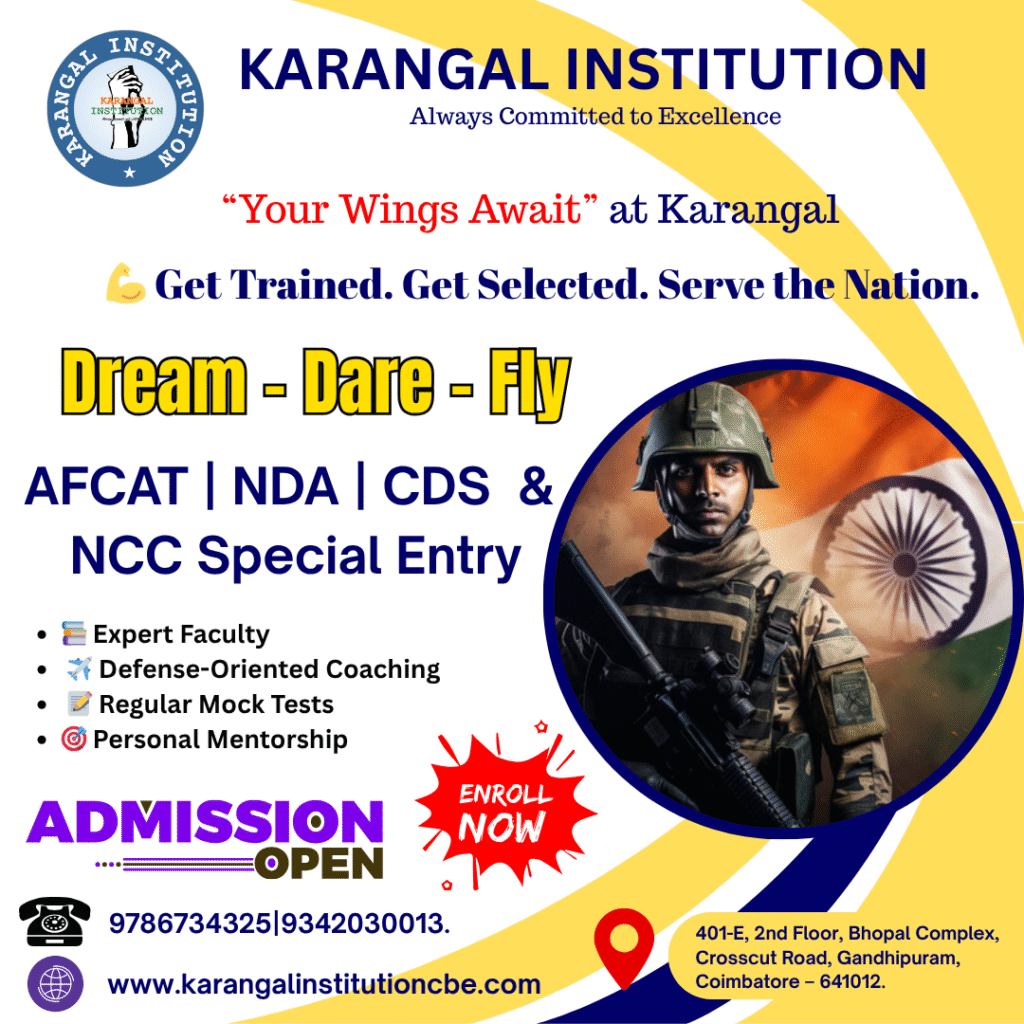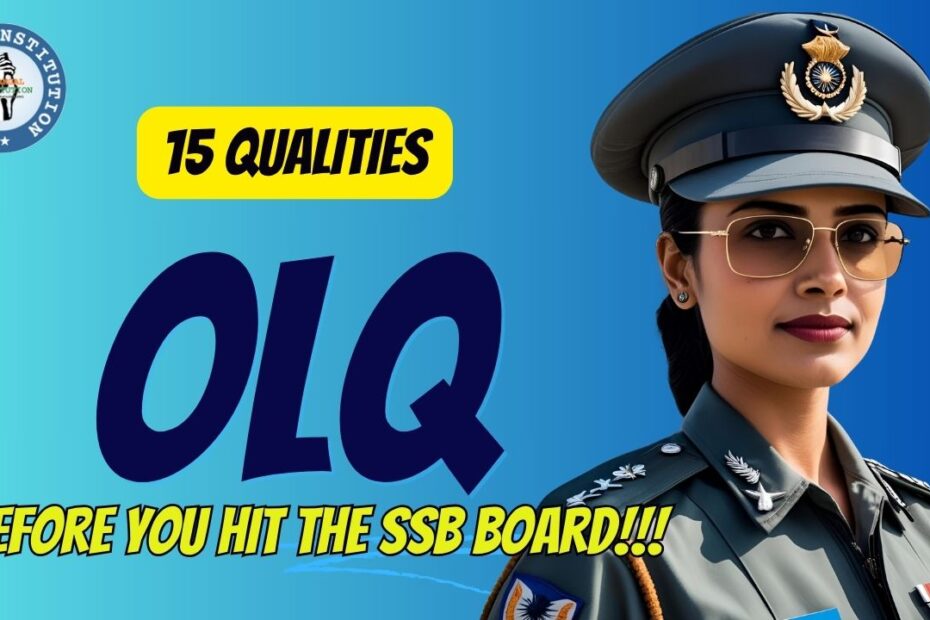In Services Selection Board - What is Seen in a Candidate?
15 OLQ's Qualities - SSB Candidates to know about it before you hit the SSB Board.
Content in this section will be reference for SSB
What is Seen in a Candidate?
Candidates often asked me at the end of al the tests what the assessors look for at the time of selection. It is unfortunate that they do not even know what are they tested for. This chapter will deal with the 15 Officer Like Qualities (OLQs), arranged in four factors, that are assessed in the SSBs. Incidentally, all three assessors measure the same 15 qualities using their respective tools/techniques as described in the later chapters. Hence, it is important for the candidates to know what is seen at the SSB.
Factor I : Planning and Organising
This factor includes four qualities which are associated with the mental aspect of the person.
- Effective Intelligence (EI): This is the ability of a person to evolve solutions to practical problems. It is different from basic intelligence which is measured using the intelligence tests (Verbal and Non-Verbal). In EI, the assessor wants to see if you can solve day-to-day problems and cope with the minor difficulties of daily life.
- Reasoning Ability (RA): It is the ability of a person to grasp a given situation and arrive at a conclusion by rational thinking . In RA, the assessors are looking for your receptivity, inquiring attitude, logical reasoning and the ability to see the essentials of a problem.
- Organising Ability (OA): It is the ability to use resources systematically to produce effective results. In OA, the assessors are interested in seeing how you use the various resources to produce results.
- Power of Expression (POE): It is the ability to put across one’s ideas adequately and with ease and clarity.
Factor II: Social Adjustment
This factor includes three qualities which are associated with the heart/ conscience of the person.
- Social Adaptability (SA): It is the ability of a person to adapt himself/ herself to the social environment and adjust well with persons and social groups. The assessor is interested in your abilities to adapt to the members of the group, how you interact with them and with the assessor, are your tactful in your dealings with others, etc.
- Cooperation (Co): It is the attitude of an individual to participate willingly and in harmony with others in a group to achieve the group goal. It is important to be a team player and one must not be selfish. The group aim and objectives should be most important as compared to individual aims and objectives. The assessors will be keen on seeing your team attitude.
- Sense of Responsibility (SOR): It is the thorough understanding of the values of duty, social standard, and of what is expected of an individual and then giving it one’s energy and attention on one’s own accord. The assessor is keen on knowing if you understand your duty as a child / student / citizen of a country and whether your have a right sense of what is the social standard and know what is expected of you as an individual, and then whether you give your best energy and attention towards it without anybody having to remind you or tell you. For example, if as a student you have not done well in school/college and do not have a valid reason for poor performance, it will be interpreted as a low sense of responsibility. Because, as a student, your duty is to study hard, and if you have failed to do that, it will obviously mean that your sense of responsibility is low.
Factor III: Social Effectiveness
This factor includes five qualities which are an outcome of the dynamic interaction of the above two factors, i.e. the head and the heart.
- Initiative (Inv): It is the ability to originate an action. The assessors see if you take the lead in the right direction and sustain it till the result is achieved.
- Self-confidence (SC): It is the faith in your own abilities to meet stressful and unfamiliar situations.
- Speed of Decision (SOD): It is the ability to arrive at a workable decision quickly. There are two components of this, namely, appropriateness of the decision and quickness in arriving at a decision.
- Ability to Influence the Group (AIG): It is the ability of a person to influence others in the group to achieve the objectives set by him/her. What is seen is, whether you can convince others to do things that you want them to do willingly, without the use of any force.
- Liveliness (Liv): It is the capacity of a person to remain calm and cheerful when faced with difficulties, and bring about a cheerful atmosphere in the group. What is seen is, whether you get unduly worried or disturbed when faced with difficult situations.
Factor IV: Dynamism
This factor includes three qualities which are associated with the limbs or the coordination between the mind and the body.
- Determination (Det): It is the ability to put in sustained efforts to achieve objectives in spite of obstacles and setbacks. The assessors see whether you are focused, able to concentrate on the task continuously work towards achieving the objectives.
- Courage (Cou): It is the ability to appreciate and take purposive risks. What is important is to take risks only where required and that too after careful thought. Some candidates tend to make rash decisions which may endanger the life of subordinates and that is undesirable. Hence, what is important is ‘calculated risks when required’.
- Stamina (Sta): It is the capacity to withstand protracted physical and mental strain. It includes both physical and mental endurance.

Conclusion:-
In the subsequent chapters, a brief description of how assessment of these qualities is done will be discussed.Even though officially, only 15 OLQs are tested, there is an unstated quality which is of great interest to the assessors, namely the “Urge and Motivation” of the candidate. Hence, your zeal in pursuing a military career is extremely important.

